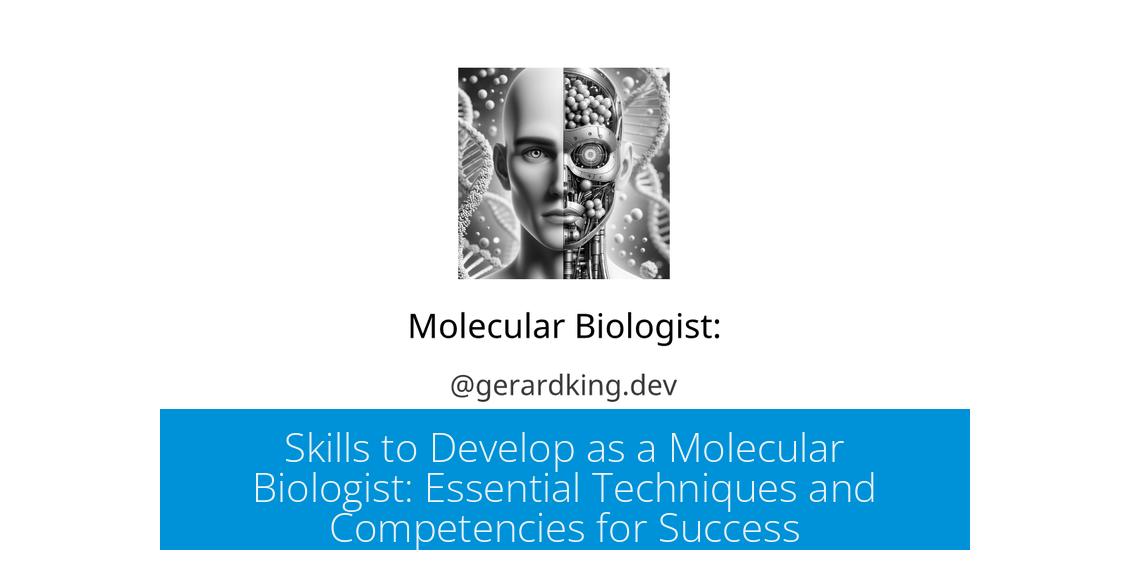Skills to Develop as a Molecular Biologist
Mastering gene editing techniques, cloning methods, bioinformatics, mathematical skills, and soft skills form the foundation for a successful molecular biologist. These competencies ensure effective research, data analysis, and professional growth.
1. Gene Editing Techniques
Proficiency in gene editing technologies is essential. CRISPR/Cas9 stands out as a critical tool for molecular biologists. Understanding not only its strengths but also limitations is necessary for accurate application.
Alongside CRISPR, familiarity with prime editing is beneficial. This emerging technique improves precision in gene modification and complements existing methods.
2. Cloning Techniques
Traditional cloning remains a vital skill. Hands-on experience with conventional methods, not just modern gateway cloning, deepens understanding of molecular workflows.
Studying foundational literature helps. For example, the textbook Principles of Gene Manipulation by Primrose offers comprehensive coverage, tracing cloning advances from early origins to modern practices.
3. Bioinformatics Skills
Competence in bioinformatics revolutionizes data interpretation. Life sciences increasingly depend on omics data, so coding skills are indispensable.
- Programming languages such as Python and R are highly relevant.
- Statistical knowledge supports robust data analysis.
4. Mathematical and Statistical Competency
Basic math skills are often underestimated but crucial. Many molecular biologists rely on arithmetic for tasks like dilution calculations and experimental design.
Maintaining strong numerical abilities enhances accuracy and confidence in laboratory processes.
5. Soft Skills and Interview Preparation
Soft skills complement technical abilities.
Preparing for interviews improves communication and presentation, enabling one to share complex ideas effectively.
- Practicing clear explanations.
- Demonstrating problem-solving aptitude.
Key Takeaways
- Gain mastery of CRISPR/Cas9 and prime editing techniques.
- Develop hands-on skills in traditional cloning methods.
- Learn coding languages like Python and R for bioinformatics.
- Maintain strong math and statistics knowledge.
- Enhance soft skills for successful interviews and communication.
What gene editing techniques should a molecular biologist master?
CRISPR/Cas9 is essential, along with understanding its limits. Prime editing is also important to know as part of advanced gene editing tools.
Why is learning traditional cloning techniques still important?
Old-school cloning builds a strong foundation. Reading “Principles of Gene Manipulation” by Primrose helps track the field’s evolution and deepens understanding.
How important are coding skills for molecular biologists?
Coding is crucial because omics data are everywhere in life sciences. Skills in R and Python enhance data analysis and research capabilities.
What math skills should molecular biologists keep sharp?
Basic math is vital for tasks like preparing dilutions accurately. Strong statistical skills aid in experimental analysis and interpreting results.
What soft skills can help molecular biologists during job searching?
Preparing well for interviews and mastering communication can make a strong impression and improve job prospects.





Leave a Comment